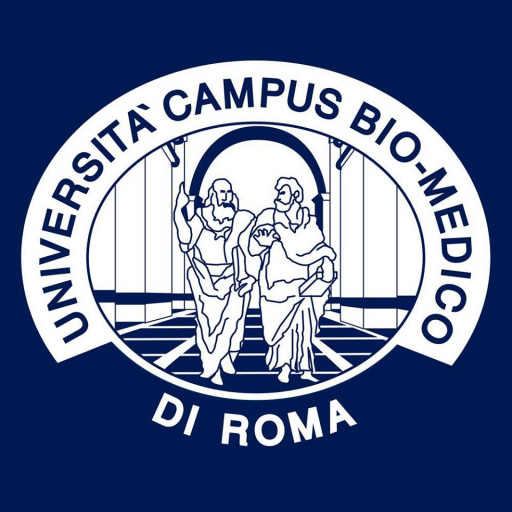If you like science and are interested by the scientific base of food production and nutrition, then this could be the perfect amount for youpersonally. If you would like to be a nurse, a product developer or even a lab analyst, this in-depth course covers all from the study of ingredients for marketing the final solution. Food and supplements scientists are in high demand within the food industry to better successfully manage operationsto develop new and better products and procedures, and also improve the efficiency and quality of the business. This level will take you through all parts of food, from the raw product to how it finishes up on the shop shelf. You will see about food processing, product development, quality guarantee and the best way to market food products online and around the world. There's also a focus on the importance of nutrition to individual health, and also the sociological and cultural topics regarding food, including caliber of preference for consumers. This class gives an perfect backdrop for additional studies in dietetics. This program comprises compulsory online classes.
On successful completion, you will be eligible for membership with the Australian Institute of Food Science and Technology (AIFST) and the Nutrition Society of Australia (NSA).
- Year 1 2 - Prerequisites Units 3 and 4: a study score of at least 20 in any English
- Components 3 and 4: a study score of at least 20 in any Mathematics or any chemistry
- ATAR. Non Year 12 - Previous degree studies with results at a pass degree, including any'only areas of analysis', or successful completion of a postsecondary preparatory program such as the Federation University Foundation Access Studies Program (FAST)
- Effective completion of a related VET qualification at Certificate III level or greater
- Candidates that have not completed secondary education, or undertaken any TAFE or university documents should include your own statement detailing all pertinent experience to strengthen their application.
The Federation University Australia offers comprehensive financial options for students enrolled in the Food and Nutritional Science program. Tuition fees vary depending on the level of study and residency status, with domestic students typically paying lower fees compared to international students. For domestic undergraduate students, the annual tuition fee is approximately AUD 8,500, whereas international students can expect to pay around AUD 27,000 per year. These fees cover access to all coursework, laboratory facilities, and academic support services provided by the university.
In addition to tuition fees, students should consider other costs related to their studies, such as course materials, textbooks, and laboratory equipment, which are often included in the overall estimation of educational expenses. Accommodation is another significant financial factor; Federation University offers on-campus housing options, which vary in price but generally range from AUD 150 to AUD 250 per week. Off-campus accommodation costs depend on the location and type of housing chosen, with shared apartments and rental houses being common options for students.
To assist students financially, Federation University provides various scholarships and assistance programs. These include academic merit scholarships, needs-based grants, and specific funds for international students. Eligibility criteria and application procedures are available on the university’s official website.
Students are also encouraged to explore government assistance programs, such as Austudy and Youth Allowance, which provide financial support for eligible students during their studies. Part-time work opportunities are available on and around campus, allowing students to earn income while studying. Federation University maintains partnerships with local businesses and industry sectors, which sometimes offer internship stipends and work placement funding to students enrolled in relevant programs like Food and Nutritional Science.
Furthermore, student loan options are accessible through government schemes or private lenders, depending on the student's circumstances. International students should also have health insurance, which is mandatory for visa requirements, adding to the overall cost of studies.
Overall, the financial planning for studying Food and Nutritional Science at Federation University Australia involves carefully considering tuition fees, living expenses, supplementary costs for materials and health insurance, and seeking out available scholarships and work opportunities. The university’s dedicated student services team helps prospective and current students navigate these financial aspects to ensure they can pursue their educational goals without undue economic hardship.
The Bachelor of Food and Nutritional Science at Federation University Australia is a comprehensive undergraduate program designed to equip students with a strong foundation in the scientific principles underlying food production, nutrition, and health. This degree emphasizes the importance of understanding the complex interactions between food, nutrients, and the human body, preparing graduates for careers in the food industry, health promotion, research, and policy development. The curriculum covers a wide range of topics including food safety, food technology, dietetics, public health, diet planning, food microbiology, and nutritional biochemistry, providing students with both theoretical knowledge and practical skills.
Throughout the program, students have opportunities to engage in laboratory work, internships, and industry placements, which enhance their real-world experience and prepare them for employment upon graduation. The program is designed to foster critical thinking, scientific inquiry, and analytical skills, enabling students to assess nutritional needs and develop appropriate food-based solutions for diverse populations. Emphasis is also placed on ethical considerations, sustainability, and cultural awareness, reflecting contemporary challenges in the food and health sectors.
Graduates of this program are well-positioned to pursue careers in areas such as food product development, quality assurance, regulatory affairs, public health nutrition, and consultancy roles within government agencies and private organizations. Additionally, the program provides a pathway for further postgraduate study, including Honours, research degrees, or professional qualifications in dietetics or nutrition science. Federation University’s facilities include state-of-the-art laboratories and access to industry networks, ensuring students receive high-quality education aligned with current scientific and industry standards. The program aims to produce graduates who are knowledgeable, innovative, and equipped to contribute positively to improving dietary health and food security on a local, national, and global scale.










